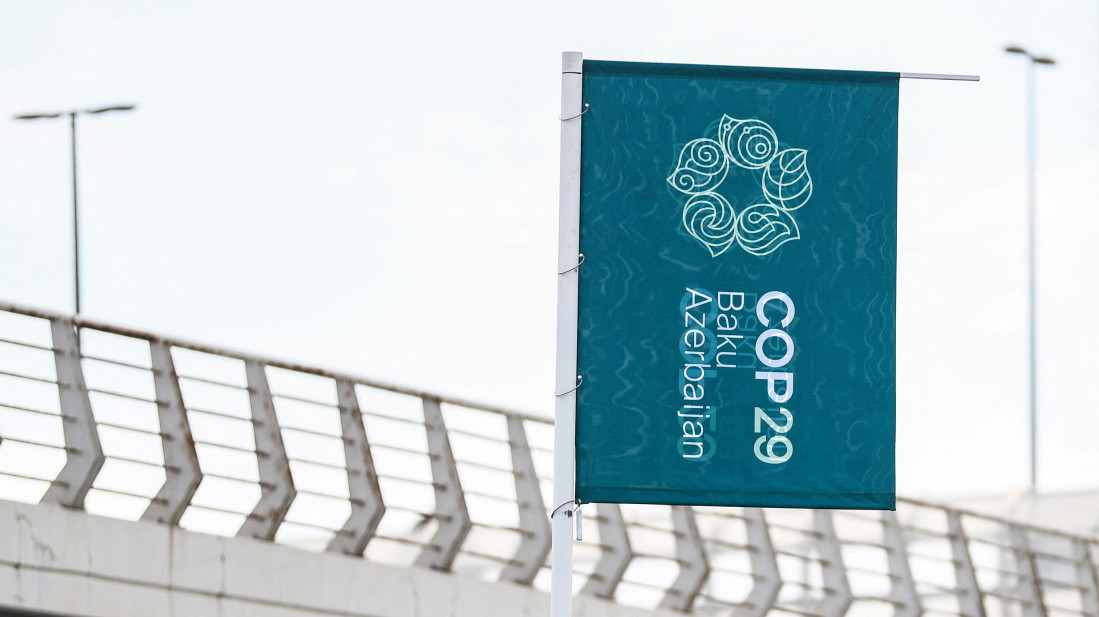Kazakhstan vows to fast-track AZAL crash investigation amid rising diplomatic tensions
Kazakhstan has vowed to speed up its investigation into the Azerbaijan Airlines (AZAL) crash near Aktau, as mounti...

EU finance ministers have committed to maintaining their share of the $100 billion global climate fund and are calling for increased contributions from other nations
As COP29 approaches in Baku, Azerbaijan, the European Union reaffirmed its commitment to funding climate action in developing nations. EU finance ministers vowed to uphold their share of the $100 billion climate fund and push for more contributions.
Ministers expressed concern over the worsening climate crisis, with 2023 recorded as the hottest year ever, seeing global temperatures 1.45°C above pre-industrial levels, along with record-breaking ocean heat, rising sea levels, and shrinking glaciers.
As part of the Paris Agreement, developed nations—including EU countries, Australia, Canada, Japan, the US, and others—had pledged to raise annual climate finance to $100 billion by 2020. They only met this target in 2022, two years after the deadline, reaching $116 billion, with the EU contributing a significant share.
However, the focus now shifts to the post-2025 climate finance framework, known as the 'new collective quantified goal on climate finance.' This is expected to be a major topic of discussion at COP29, with some nations, including the EU, pushing for broader financial contributions, particularly from major economies like China.
Environmental groups, such as Greenpeace, criticized European governments for not holding the fossil fuel industry accountable for its role in the climate crisis. Greenpeace also highlighted that developing countries require approximately $1 trillion annually in financial assistance to cope with climate change impacts. The group urged EU negotiators to advocate for higher climate finance and tax major polluters at the Baku summit.
The EU’s final position for COP29 will be determined at a meeting on 14 October.
The Kremlin is utilising the recent United States and Israeli military strikes on Iran to validate its ongoing war in Ukraine. Russian officials are pointing to the escalation in the Middle East as evidence that Western nations do not adhere to international rules.
Saudi Arabia’s state oil giant Saudi Aramco closed its Ras Tanura refinery on Monday following an Iranian drone strike, an industry source told Reuters as Tehran retaliated across the Gulf after a U.S.-Israeli attack on Iranian targets over the weekend.
The Middle East crisis intensifies after the deadly attack on the compound of the Supreme Leader of Iran Ali Khamenei on Saturday that killed him, other family members and senior figures. Iran has launched retaliatory strikes on U.S. targets in the region.
U.S. President Donald Trump said the U.S. military has enough stockpiled weapons to fight wars "forever"; in a social media post late on Monday. The remarks came hours before conflict in Iran and the Middle East entered its fourth day.
Türkiye raised its security level for Turkish-flagged vessels in the Strait of Hormuz to Level 3 on Sunday (2 March). The development follows Iranian restrictions on shipping after U.S. and Israeli strikes and confirmation of Supreme Leader Ali Khamenei’s death.
The death toll from heavy rains and flooding in Brazil’s Minas Gerais state has risen to 46, authorities said, with 21 people still reported missing. The storms triggered landslides and widespread flooding, displacing thousands across Juiz de Fora and Uba.
The administration of U.S. President Donald Trump on Thursday (12 February) announced the repeal of a scientific finding that greenhouse gas emissions endanger human health, and eliminated federal tailpipe emissions standards for cars and trucks.
Tropical Cyclone Gezani has killed at least 31 people and left four others missing after tearing through eastern Madagascar, the government said on Wednesday, with the island nation’s second-largest city bearing the brunt of the destruction.
Rivers and reservoirs across Spain and Portugal were on the verge of overflowing on Wednesday as a new weather front pounded the Iberian peninsula, compounding damage from last week's Storm Kristin.
Morocco has evacuated more than 100,000 people from four provinces after heavy rainfall triggered flash floods across several northern regions, the Interior Ministry said on Wednesday.
You can download the AnewZ application from Play Store and the App Store.

What is your opinion on this topic?
Leave the first comment